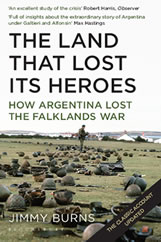Review of Adam Sisman’s Biography of John le Carré
pubilshed in The Tablet 17 December 2015
Le Carré, like Greene, drew from his own experience in the intelligence servies to produce some of his best work: The Spy Who Came in from the Cold and Tinker, Tailor, Soldier, Spy, relatively early on in his writing career, and A Perfect Spy, described by Philip Roth as “the best English novel since the war”, halfway through it. In stark contrast to Ian Fleming’s comic-strip hero James Bond, the morally ambivalent and vulnerable characters in le Carré’s spy novels shed a light on the murkier aspects of the world of the secret services, exposing its cynicism and amorality as well as its understated courage.
The ghost of Greene looms large over le Carré’s life and work. For both, their fiction is a way of escape from unresolved dilemmas in their personal lives. The Catholic guilt associated with adultery and marital breakdown gives Greene’s The End of the Affair its emotional charge, while the burden of having a fraudster and philanderer as a father fuels the distaste for treacherous Cold War agents and greedy corporations and corrupt politicians in the post 9/11 world that drives le Carré’s most accomplished novels.
Many of le Carré’s later novels leave spies and spying behind, but whereas Greene’s Catholic faith – for all its doubts – came to give the best of his writing scope and edge, le Carré’s restless and seemingly addictive search for a cause has failed to generate universal recognition of him as a great writer, despite him being a prolific (23 novels in 50 years) and hugely popular one. While Greene stands virtually uncontested as one of the greatest writers of the twentieth century, le Carré’s reputation remains, as Adam Sisman puts it, “curiously ambiguous”. His critics not only question whether even his best spy novels amount to great literature, but doubt he is anything more than a good spy writer who has struggled to succeed in other genres.
Adam Sisman is at his best in this meticulous and illuminating biography in detailing the rise and rise of the obsessively driven professional spy turned celebrity novelist, churning out a novel every two years or so, several of which would subsequently be turned into lucrative TV series or feature films,
to keep his agents and publishers happy.
For an author acutely conscious of his place in the literary pecking order, it was brave of le Carré to encourage his biographer to “write without restraints”. But it was a calculated risk. Sisman admits to being a long-term admirer of le Carré’s work, counting himself among those who believe that he is one of the most important English writers of the post-war period. Thankfully, his biography stops well short of hagiography. Sisman agreed to le Carré’s precondition that he would not press him about his time working as a spy. He acknowledges that while it may have served le Carré’s purpose to keep this aspect of his life hidden – another “cover”, like his name – it would do the reader a disservice, and probably the subject too, if he didn’t try and find out as much as he could about his time in the intelligence services from other sources.
We learn that le Carré was recruited by MI5 to spy on his fellow students while at Oxford, then served in MI6 in post-war Germany, where he befriended, among others, two well-known Catholic servants of the Crown, the Foreign Office’s David Goodall and MI6’s Peter Lunn, son of the convert and apologist Arnold Lunn. A fluent German speaker, le Carré is widely recognised by his former colleagues to have done a good job, vetting refugees and recruiting agents.
After leaving MI6 to devote himself to writing full time, le Carré maintained informal contacts with British intelligence, being invited by spy chiefs to speak to recruits even after he had strongly criticised the US “war on terror” in Iraq. The final pages contain a rare mea culpa. His friend, the late MI6 chief David Spedding, confessed to le Carré just before he died of lung cancer in 2001: “You can’t imagine how disgusting our world has become.”
By then, le Carré’s secret world had turned full circle, back to the early days of the Cold War, when Alec Leamas, the jaded intelligence officer in The Spy Who Came in from the Cold, had hit out at the moral ambiguity of the work he was asked to do in the service of his country. “What the hell do you think spies are?” he asks his girlfriend, “moral philosophers measuring everything they do against the word of God or Karl Marx? They’re not! They’re just a bunch of seedy, squalid bastards like me: little men, drunkards, queers, henpecked husbands, civil servants playing cowboys and Indians to brighten their rotten little lives.”
And yet le Carré refused – when given the opportunity – to meet the Cambridge spy Kim Philby at his Moscow home, on patriotic grounds. Like Greene, le Carré was fascinated by Philby’s ability to deceive and both writers were to use him as source material. But, unlike Greene, le Carré could never consider Philby worthy of friendship – perhaps because he lacked the compassion and literary imagination of a Catholic.

